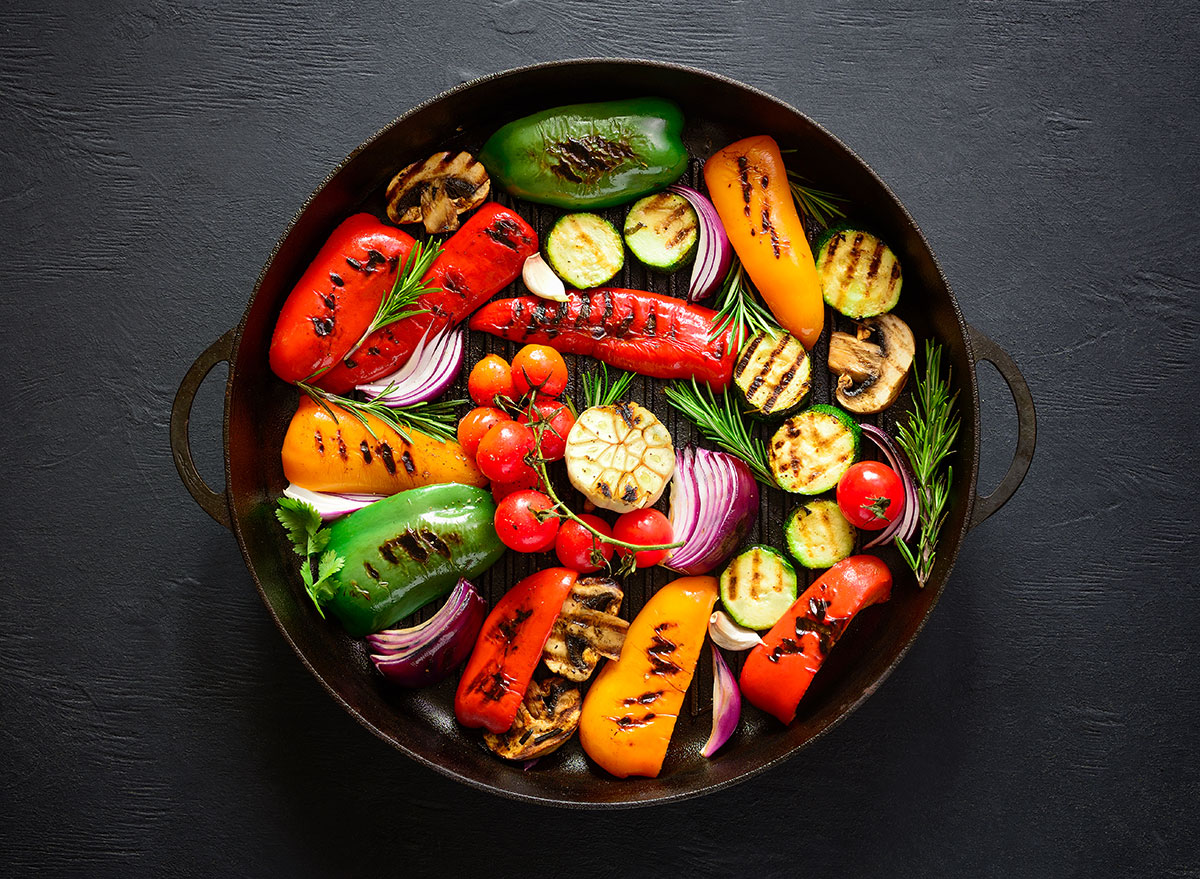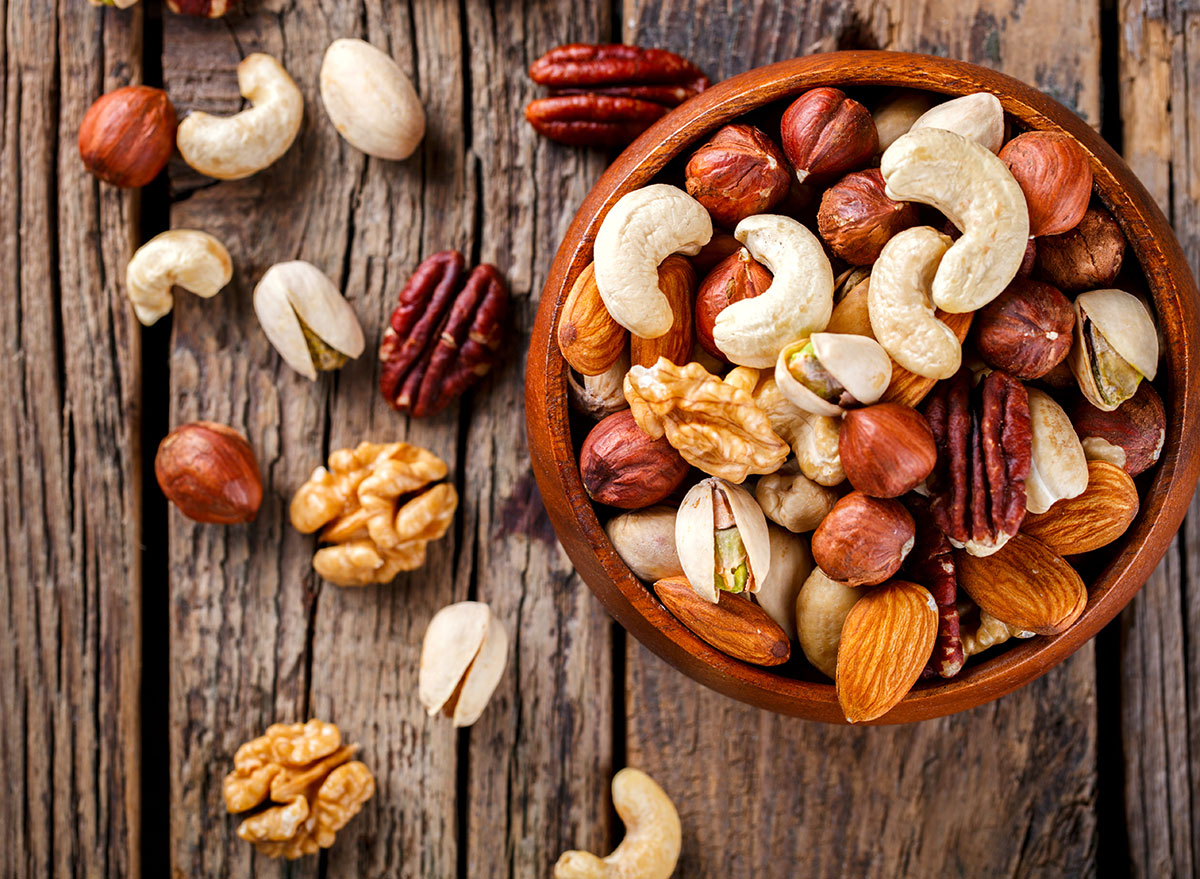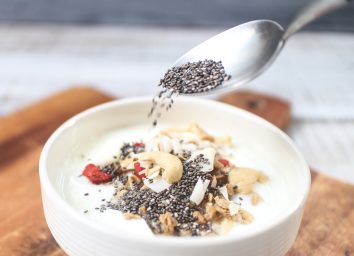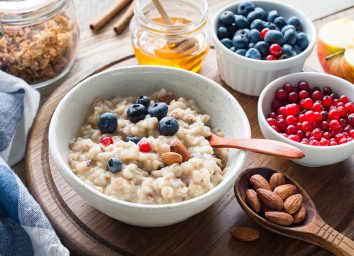The #1 Best Diet for a Longer Life, Says Dietitian

We've all had that moment when we see someone well into their 90s who is vibrant, active, and happy, and we think to ourselves, "what is their secret?!" Research shows that the secret to adding years to our lives lies in things like thriving relationships, purpose, and a healthy diet.
So while we are working on our relationships and motivation in life, how can we know what diet is best for living a long, healthy life? We may find the answer by looking at other parts of the world where people live the longest.
According to Lauren Harris-Pincus, MS, RDN, founder of NutritionStarringYOU.com and author of The Everything Easy Pre-Diabetes Cookbook, the #1 best diet for a longer life is the Blue Zone diet.
What is the Blue Zone diet?
"The Blue Zones diet reflects guidelines based on the diet and lifestyle of the world's longest-living people in 5 different parts of the world," says Pincus. To create the Blue Zone diet, Dan Buettner, founder of the Blue Zones Project, researched the five parts of the world where there was the highest percentage of centenarians, people who live to be 100 years or older.
The five regions are Loma Linda in California, Nicoya in Costa Rica, Sardinia in Italy, Ikaria in Greece, and Okinawa, Japan.

How do we follow this diet?
After researching and spending time in these parts of the world, the Blue Zones Project determined the common denominators among the regions so that people could adopt these principles themselves.
"Though the exact foods differ depending on the local foods available around the world, eating to live longer can be boiled down to several key principles," says Pincus.
According to Pincus, the basic principles of the Blue Zones Diet are:
- Make at least 90% of your diet plant-based. People in the Blue Zones get the majority of their nutrients from vegetables, fruits, whole grains, and nuts. "Not only are these foods full of vitamins, minerals, antioxidants and phytochemicals to help prevent lifestyle diseases, they are also (mostly) rich in fiber which feeds a healthy gut to help reduce inflammation, regulate metabolism and support our immune system," says Pincus.
- Limit the amount of animal products you eat. "In the blue zones, people average about 2 ounces of meat, 5 times per month and consume fish fewer than 3 ounces up to three times per week," says Pincus.
- Drink mostly water with some coffee, tea, and red wine.
- Stick to whole grain or sourdough bread, preferably with few ingredients.
- Consume mostly whole, less processed foods. "People in the blue zones generally cook with whole foods and rarely have artificial preservatives," says Pincus.
- Minimize added sugar. According to Pincus, "Those living in the blue zones consume about 1/5th of the added sugar as North Americans, about 7 teaspoons vs our 22 teaspoons per day."
- Snack on nuts. Nuts are a common denominator among these different regions, and many people in the blue zones eat them on a daily basis.
- Eat at least 1/2 cup of beans per day. "They are central to every longevity diet in the world with complex carbohydrates, fiber, and plant-based protein," says Pincus.
Don't forget about lifestyle
The type of food we eat is vital to our health, but it's important to also give attention to other aspects of our daily lives as well.
"People in the blue zones move naturally about every 20 minutes, have strong social connections with a sense of purpose and community, spend little time with electronics, and do work by hand whether in the kitchen or garden," says Pincus.
It's okay if we can't adopt all of these principles at once! It's not important that we do everything on this list, but that we take a look at potential areas we can improve on in our own lives. "Anything we can adopt to improve the quality of our diets and our lifestyle habits is beneficial," says Pincus.
For more healthy eating news, make sure to sign up for our newsletter!
Read these next:
- Simple Ways to Never Age, According to Experts
- Popular Foods Proven to Make You Live Longer, Says Science
- Eating More of These Foods Can Add 5 Years to Your Life, New Study Says








